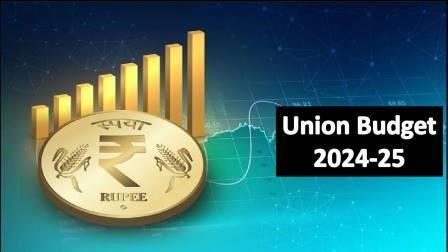
THE Indian economy is at a critical cross-road, where the GDP growth is in no way boosting the employment generation capacity. Even within the jobs created, 57.3 per cent are self-employed, 18.3 per cent are unpaid household workers and more than 45 per cent are employed in agriculture. The Production Linked Incentive (PLI) Scheme launched in March 2020 has utterly failed to generate employment in manufacturing and strikingly India’s year-on-year manufacturing productivity has fallen by 2.38 per cent in 2022-23. But due to the incentives and many other expropriatory bonanzas from the Modi government, India’s listed companies reaped enormous net profit at the rate of 10.1 per cent in 2023-24, which is the highest since 2007-08. Now the Economic Survey has stated that the Indian economy is in dire need to generate an average of nearly 78.5 lakh jobs annually in the non-farm sector to meet the needs of the rising workforce.
Given this acute employment crisis and the issue becoming a hot topic in the Lok Sabha election campaign, one would have thought that the first union budget of the third Modi government would pay special attention to employment generation and creating new job opportunities. However, the budget presented by finance minister Nirmala Sitharaman is notable for the hollow and deceptive measures to create jobs in the formal sector while liberally doling out public funds to the corporates.
The finance minister has announced a set of Employment Linked Incentive (ELI) Schemes creating much hype among the corporate pundits. Scheme A is applicable to all employers whereas B and C are for specific categories. As per the scheme A, if an employer recruits a new worker or enlists any unlisted worker in EPFO, then the government will pay one month’s salary of the worker up to a cap of Rs 15,000 in three installments. It means that, government is going to directly subsidise the employer one twelfth part of his payable annual wage share. Employers in manufacturing, who hires at least 50 new non-EPFO workers, will be eligible for scheme B. In this scheme, government will pay the employees’ and employers’ share of EPFO, calculated as 24 per cent of the salary component directly from the people’s money.
As per scheme C, any company that recruits 2-5 new employees will receive EPFO employer contributions of up to Rs 3,000 per month. Clearly, government will subsidise up to 32.33 per cent of the wage component from the public exchequer. Most harmful fact is that companies have to recruit new employees every year to avail this scheme; it means the workers recruited in the first year will be nothing but fixed-termed and thrown out after completion of one year and these schemes will accentuate retrenchment for availing government subsidy.
Another blow is the internship policy, where the government has delinquently allowed the top 500 most profiteering companies to run their entire production and services with interns/apprentices. Government will take the burden of monthly stipend of Rs 5,000 and one-time assistance of Rs 6,000 and the rest of the training cost can be taken from the company’s CSR funds. The pro-corporate government will by this notorious plan drive employment relation towards a fragile direction where the fresh intern batches, with the state-of-the-art knowledge of automation and technology and skill to learn fast are going to be burdened with the whole core responsibility of the production process. The huge reserve army of unemployed or vocationally educated youths will wait at the factory gates every year to replace the old batches from the process of production.
This siphoning of money from the public exchequer to private kitty will certainly not resolve even a bit of the unemployment problem. The way to enhance production linked profit is to enhance the unpaid labour component in it and the ELI and internship schemes are a deliberate attempt by the Modi government to put free labour at the disposal of the corporates. But, the persistent fall in aggregate demand owing to declining purchasing power of the people is bringing down the net sale and realisation of production linked profit and thus affects the mood of private investment towards production. Corporate income growth is consistently being channelised toward speculation. The government may subsidise the corporates but the state of the economy and the conditions of the people will be worsened further with these schemes.
(July 24, 2024)


